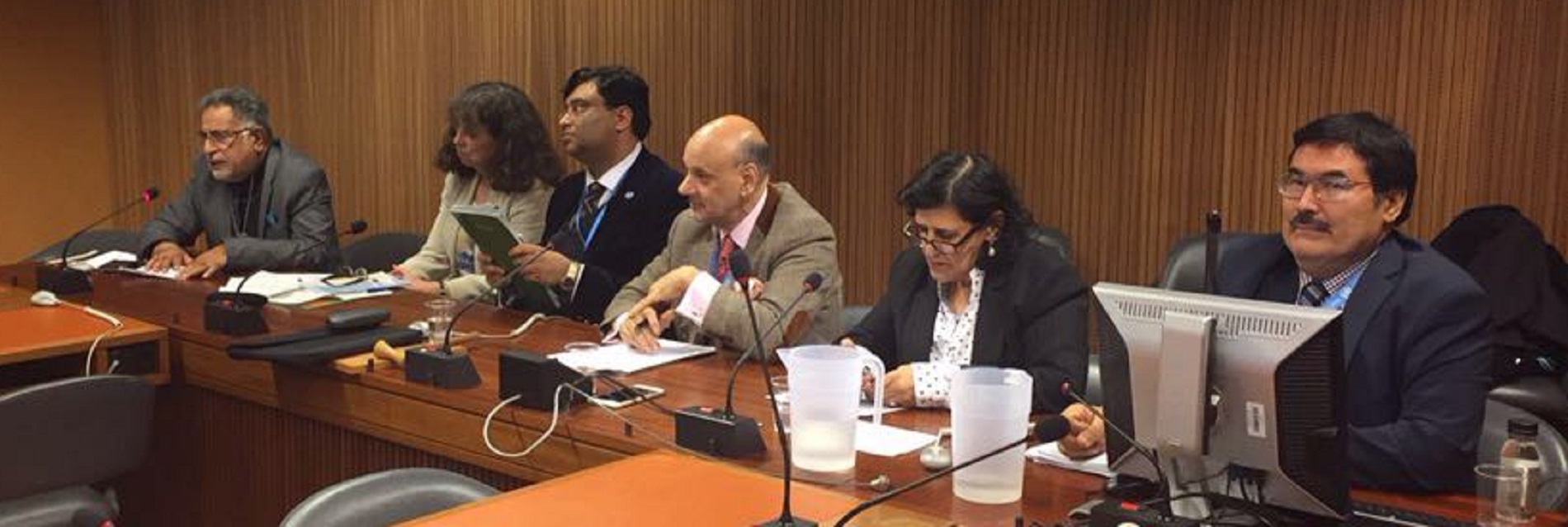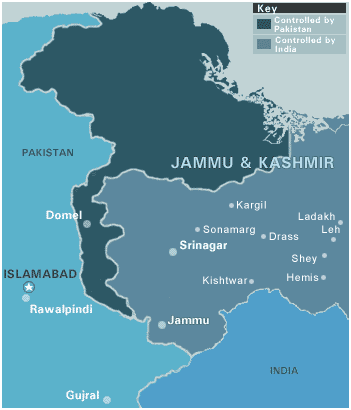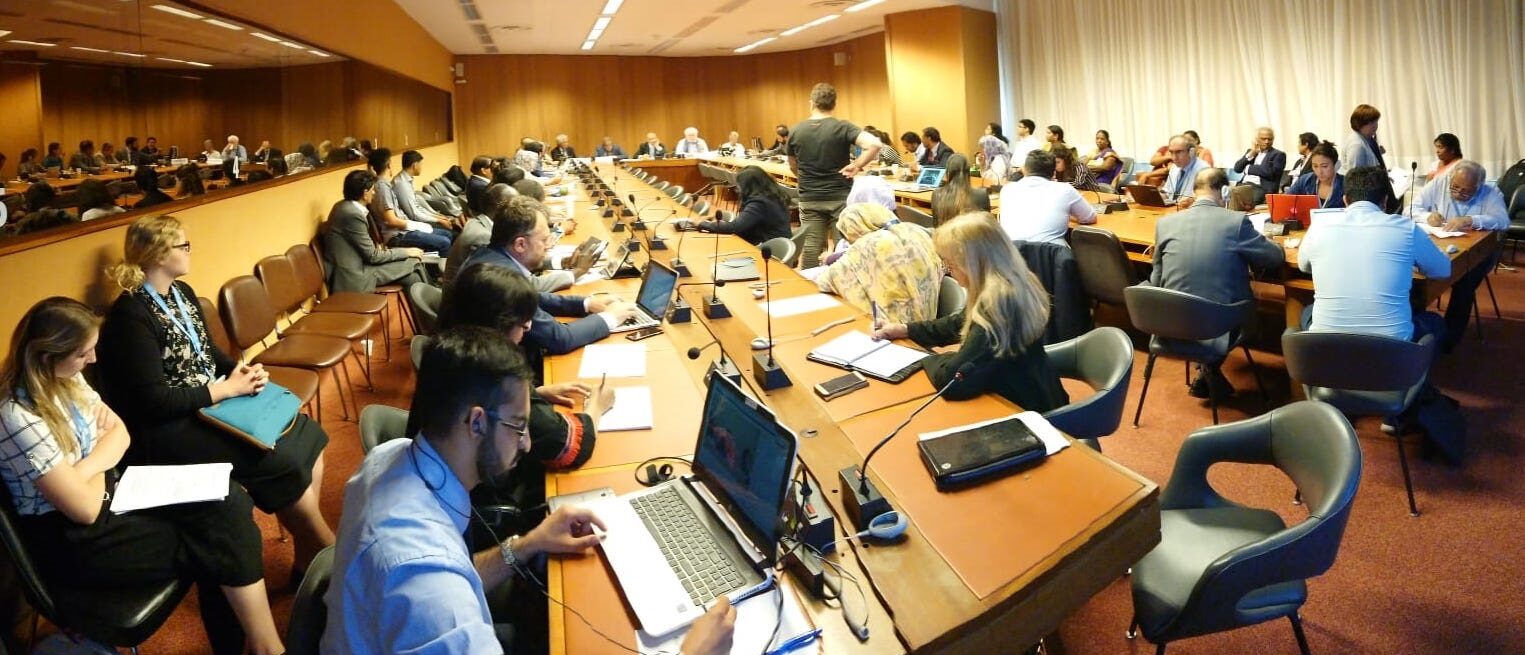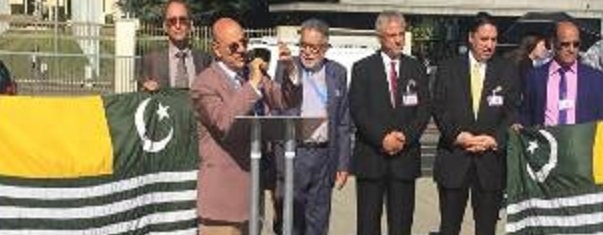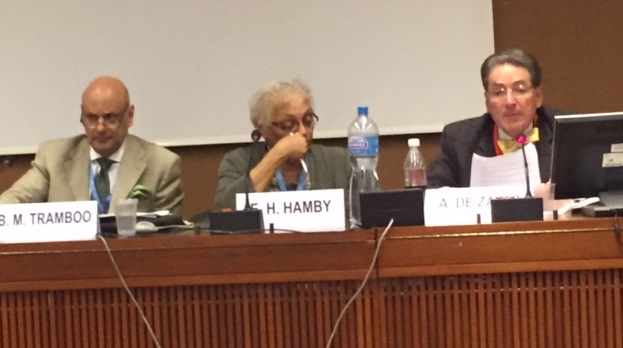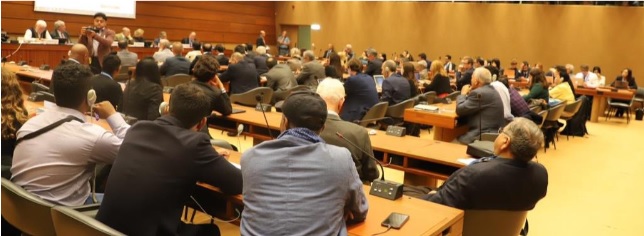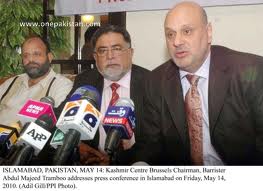The people of Jammu & Kashmir have now waited several decades to exercise their right to self-determination. In 1948, the United Nations Security Council passed unanimous resolutions under which the people of Jammu & Kashmir are to determine their own future through a “fair and impartial plebiscite under auspices of the United Nations”. The Government of India has persistently refused to permit the Kashmiris to exercise this right.The people of Kashmir, frustrated by India’s force and fraud, launched a genuine and popular uprising nearly 14 years ago for freedom and peace. Consequently,the Kashmiris sustained and continue to sustain devastation and gross human rights violations inflicted upon them by the Indian regular military and paramilitary forces. It is an unequal struggle,bearing in mind that Kashmiris are defying the third largest army in the world. India unrealistically, undemocratic and unlawfully claims the territory of Jammu & Kashmir as her “integral part”. But this claim is belied by India herself by perpetrating a reign of utter terror in Jammu & Kashmir:
• No civilized and democratic country stations over 700,000 troops, military, and paramilitary forces on the streets, residential areas, shopping centers etc.—as India has in occupied Jammu & Kashmir.
• No civilized and democratic country murders and kills over 90,000 people—as India has in the occupied Jammu & Kashmir.
• No civilized and democratic country detains thousands and thousands of people over 10 years without charges or trials—as India has in the occupied Jammu & Kashmir.
• No civilized and democratic country tortures, maims and rapes her people—as India has in the occupied Jammu & Kashmir.
There is one simple reason for all this—the Kashmiris demanding their right to self- determination, as promised to them by the international community through the United Nations Security Council’s resolutions and the UN Charter.
The Kashmir Center EU at Brussels and the All Parties Group on Kashmir in the European Parliament were able to persuade its committee on Foreign Affairs, Human Rights, Common Security and Defense Policy to send an ad-hoc fact finding delegation to Kashmir. Following its two visits to both sides of the Kashmir divide as well as to the two national capitals of Pakistan and India, the delegation now submitted its report to the Foreign Affairs Committee. There are, in total, seven recommendations.
All the recommendations deserve special mention here but in particular are the recommendations of the Committee on Foreign Affairs, Human Rights, Common Security and Defense Policy of the European Parliament: “Recommendation #1: We believe that there are three parties which have legitimate interest in finding a solution to the Kashmir problem, namely the Indian government, the Pakistan government and the Kashmiri people and their representatives, and therefore, that all three should be fully involved.
Recommendation #4: We would propose that a conference involving academics and relevant experts from both sides of Kashmir, India, Pakistan, as well as from the EU, be held to examine options for conflict resolution.
Recommendation #6: We would call upon the new Indian government, in the new climate, to reconsider its position on UNMOGIP (United Nations Military Observer Group in India and Pakistan), and to enable it to properly carry out its UN mandate by once again allowing and facilitating equal access for UNMOGIP to the Indian- administered side of the Ceasefire Line.
Recommendation #7: We strongly recommend that the European Parliament’s Committee on Foreign Affairs appoint a standing rapporteur on Kashmir.


